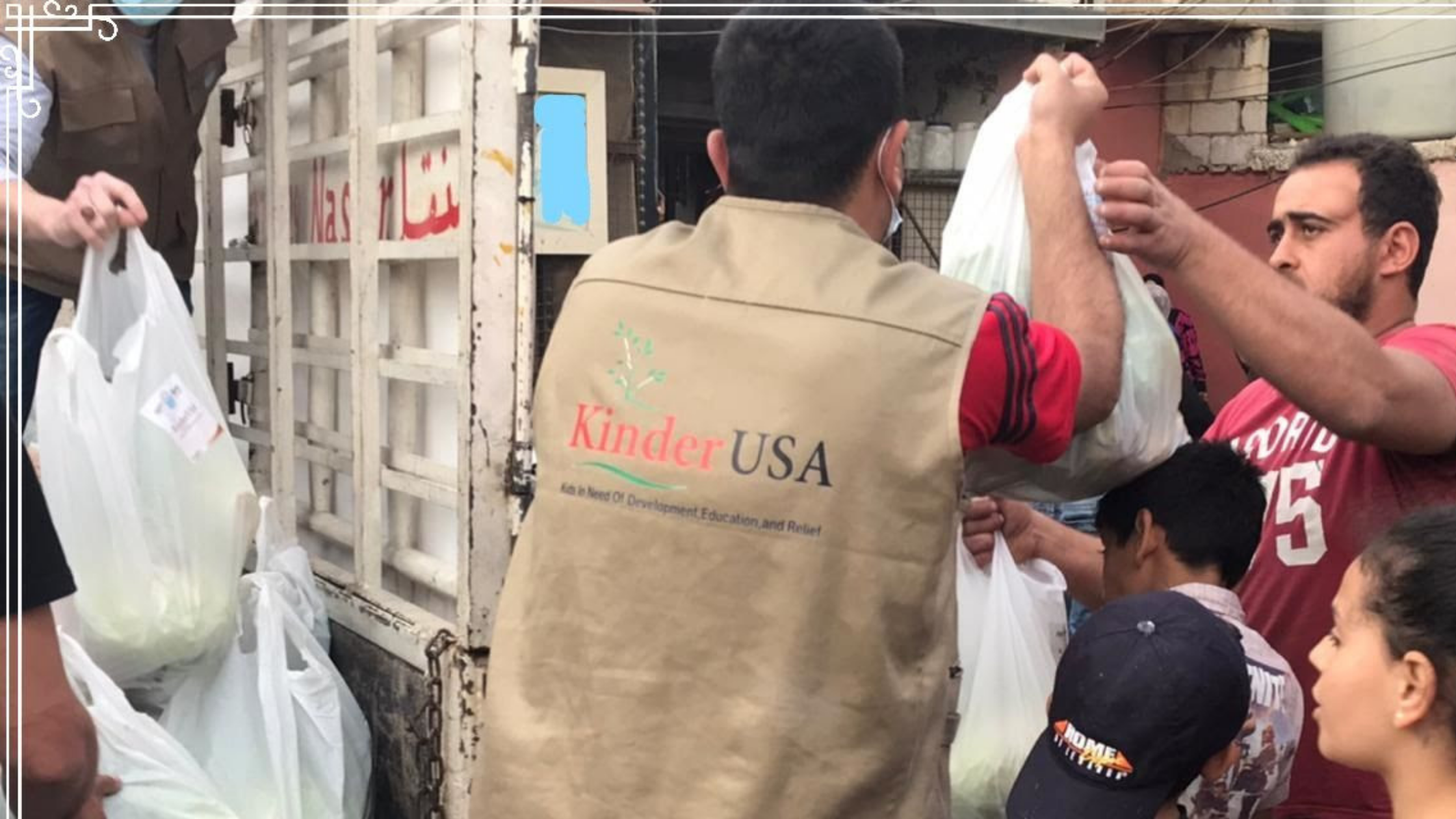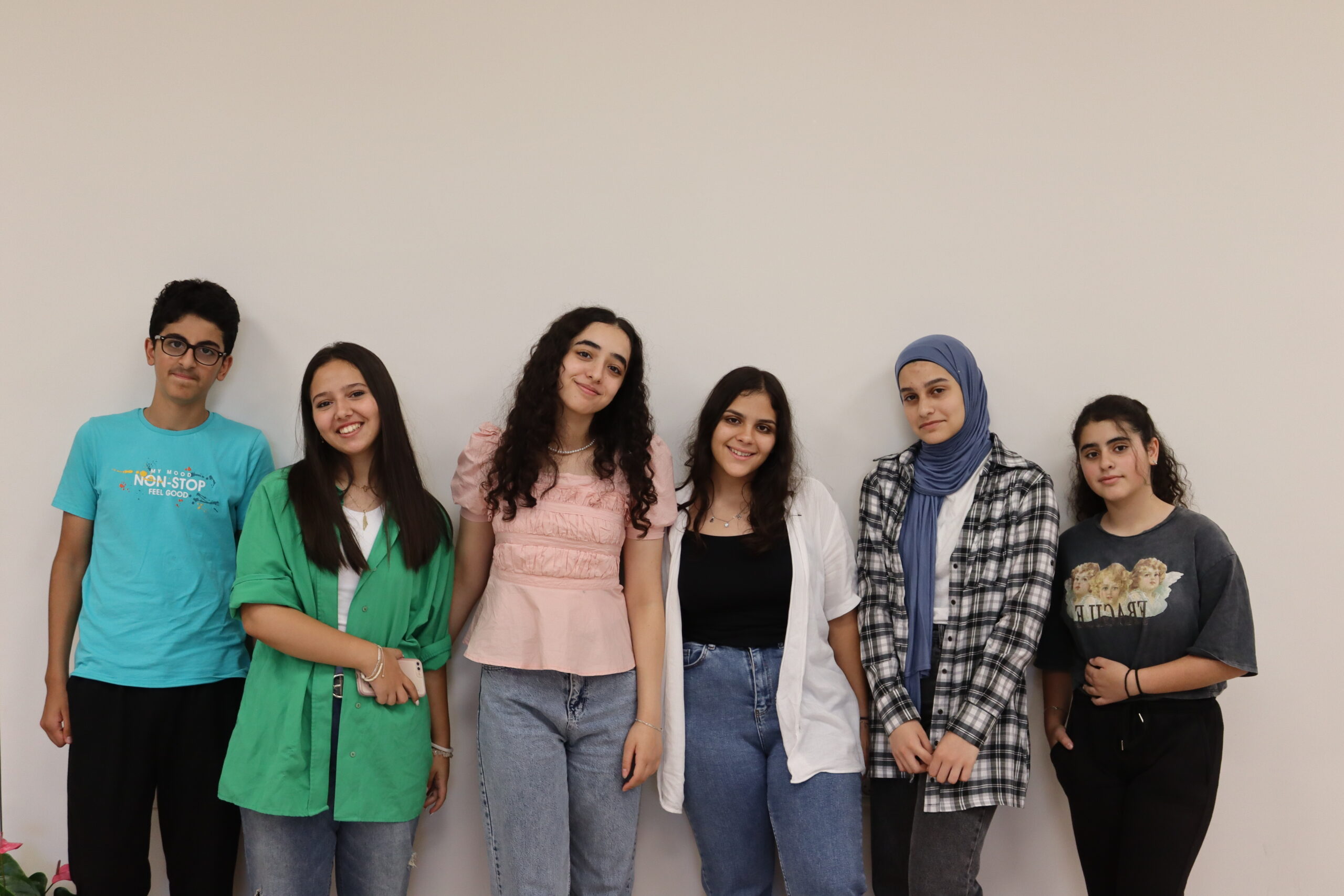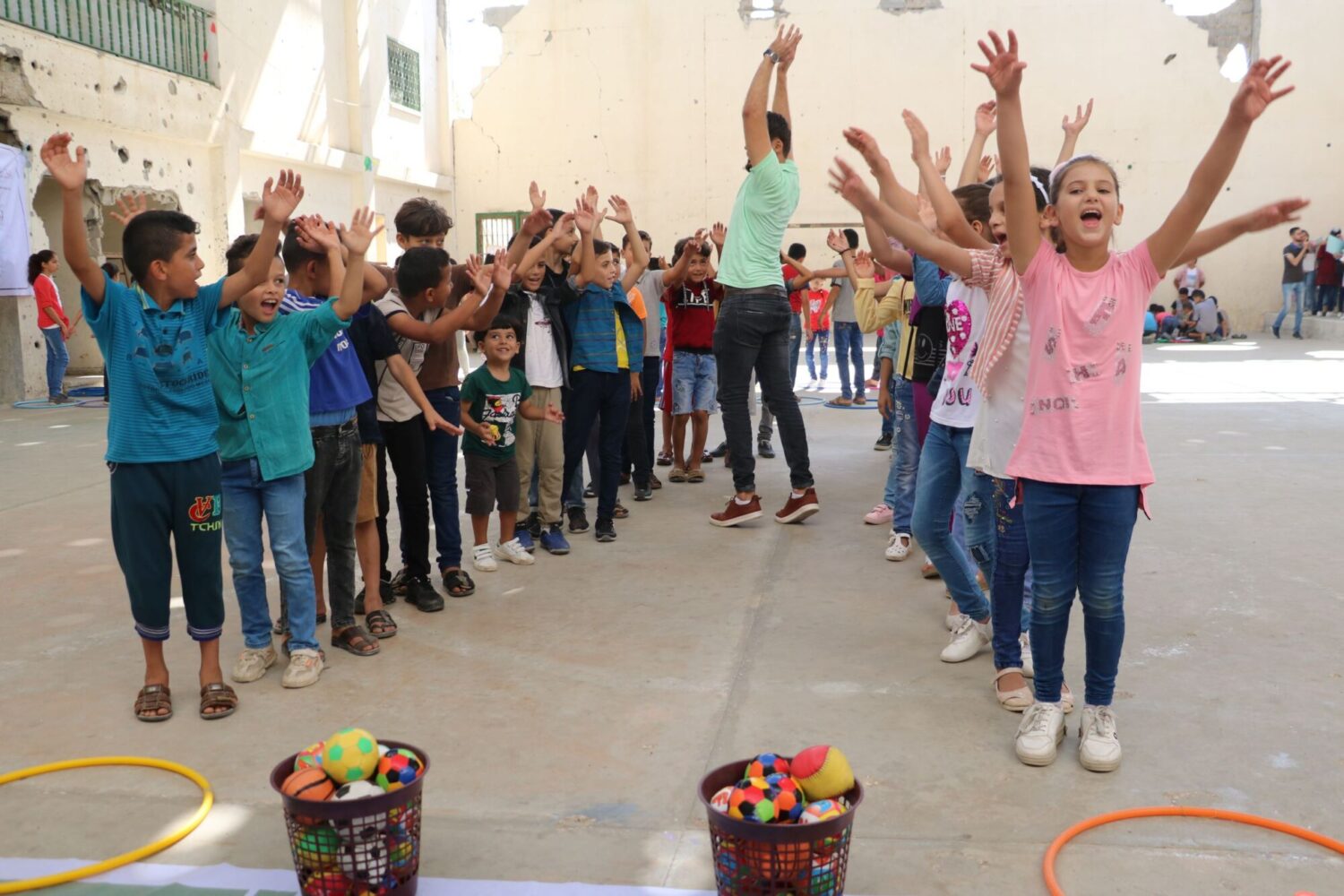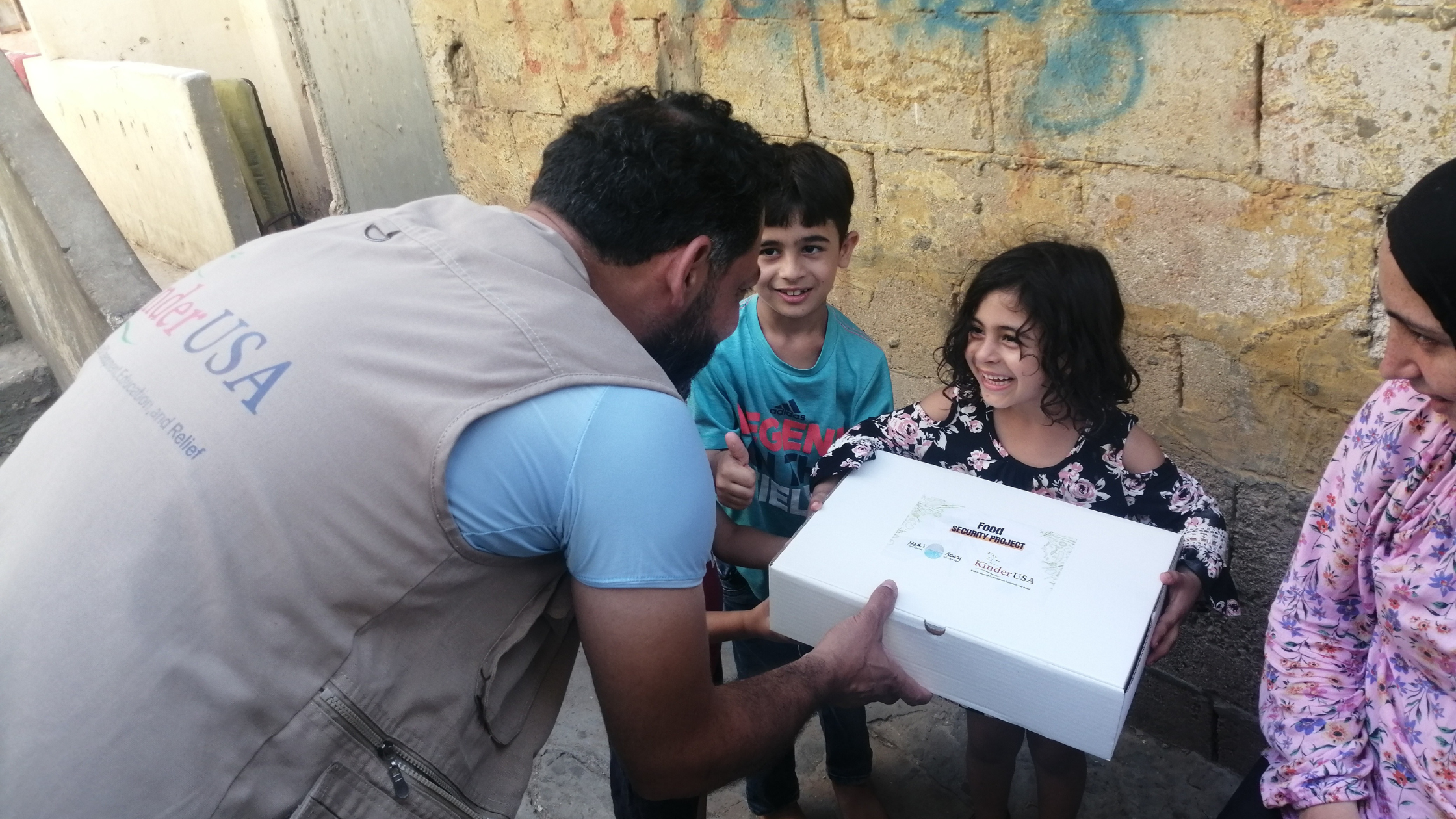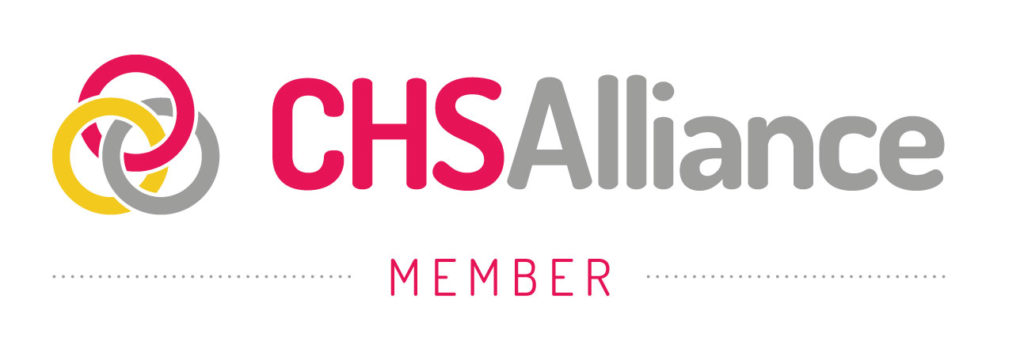In Lebanon, food prices continue to increase while the people’s income capacity decreases, with Lebanon now considered having some of the most expensive food in the Middle East and North Africa. With more than 60% of Lebanese living below the poverty line, and the Lebanese pound losing 90% of its value, the state of Palestinian and Syrian refugees is even worse and in need of urgent assistance.
Covid has thrown families into poverty across the globe, but in Lebanon the population faces an unprecedented economic crisis coupled with the fallout from the Beirut port explosion. Vulnerable Lebanese, Palestinian and Syrian refugees are experiencing food shortages across Lebanon with some international agencies predicting acute hunger could be reached in weeks.
To address this urgent crisis during Ramadan, KinderUSA in partnership with FingerPrint of Change implemented a community kitchen project targeting Palestinian, Syrian, and vulnerable Lebanese families, living in Beirut and surrounding suburbs. Each family receives a freshly prepared iftar meal three days per week, with the most vulnerable families benefiting four times a week.
Through the purchase of locally grown food and ingredients, food preparers are hired from the camp population along with delivery personal which helps boost the local economy and facilitate job creation.
“We give special attention to hygiene, and to including necessary nutrients, providing fresh, hot, healthy meals on iftar time. The most important, we care about the respect and dignity of our beneficiaries,” said Loubane Tay, founder of FingerPrint of Change.
Meals change with each distribution to provide variety from Shish Taouk, Beef Shawarma, to simply spiced chicken all served with rice, salad, and yogurt. In addition, each family receives a bag of bread along with a bag of fruit and vegetables that includes tomatoes, cucumber, potatoes, apples, and more.
The distribution, ongoing throughout Ramadan, documented several of the beneficiaries expressing gratitude during this time of economic hardship. One father cried to our partners that his children would have only received yogurt and bread if not for this meal.
Our work is impossible without your continued support. The gratitude expressed by the recipients of our Ramadan program, gratitude for healthy food that sustains them during this blessed month, reminds us of how much we have to be thankful for. Thank you!

